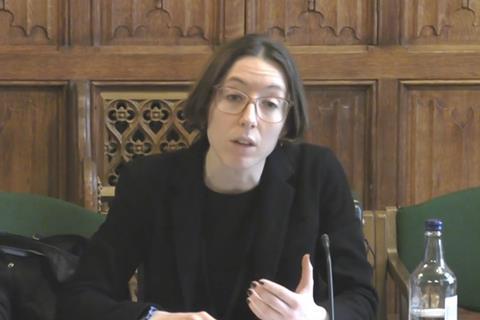Litigants forced to abandon their day in court due to over-listing are under-settling claims because they cannot face returning, MPs have been told.
Giving evidence to the justice committee of the House of Commons on Tuesday, barrister Elizabeth Gallagher said the adjournments forced by courts’ block listing are now turning people away from pursuing access to justice.
Gallagher, a member of the Personal Injury Bar Association, said that courts list matters beyond the capacity of available judges in the expectation that cases will drop out.
But when most proceed to court, a logjam leaves clients bewildered and lawyers often out of pocket.
‘There is an issue with people settling at under-value because they can’t cope with the process any more,’ said Gallagher, from Temple Garden Chambers. ‘There is a resolution but it is not a satisfactory resolution and it is not really justice because it is not about what is right on the facts. It feels very often as if people are having their arm twisted behind the back.’
Gallagher cited Bedford County Court as having a particular problem with block listing. As many as 12 fast track cases are routinely listed to be heard by two district judges, for trials which are likely to take half a day at least.
When everybody turns up, she said, lawyers and their clients have to share three conference rooms and many end up sitting on the stairs as there is nowhere else to go. ‘It is simply a fact that there are not enough judges to hear all the cases – that is why everything is pulled due to lack of judicial availability,’ she added.

Emily Giles, a housing lawyer with the Hyde Group, a not-for-profit housing association, agreed that a major problem was with trials being vacated due to a lack of judges.
She recalled one particularly sensitive case which was listed for Chichester but was moved on the day to Worthing and then transferred again at the last minute to Brighton.
‘Our client was having to deal with some very distressed neighbours who agreed to come forward and give evidence and we are now 18 months down the line and still trying to resolve the matter,’ she added.
Witnesses agreed there was ‘no point’ trying to make a complaint to HM Courts & Tribunals Service.
The committee, which is investigating the state of the county court estate, heard that waiting times for fast track trials are now six months longer then in 2019 – despite the number of claims falling during the pandemic.
Accessibility remains a big problem, with 10 county courts believed to be unsuitable for wheelchairs. Gallagher said that it was ‘scandalous’ that a public building might not be accessible, particularly when it might exclude disabled members of the profession who cannot get into court.
She added that some county courts were ‘literally crumbling’ and gave the example of Romford, where the ceiling has fallen through and parties going into the courtroom past the hazard are ‘told to run’.
The committee will hear from HMCTS and government officials in the coming weeks.










